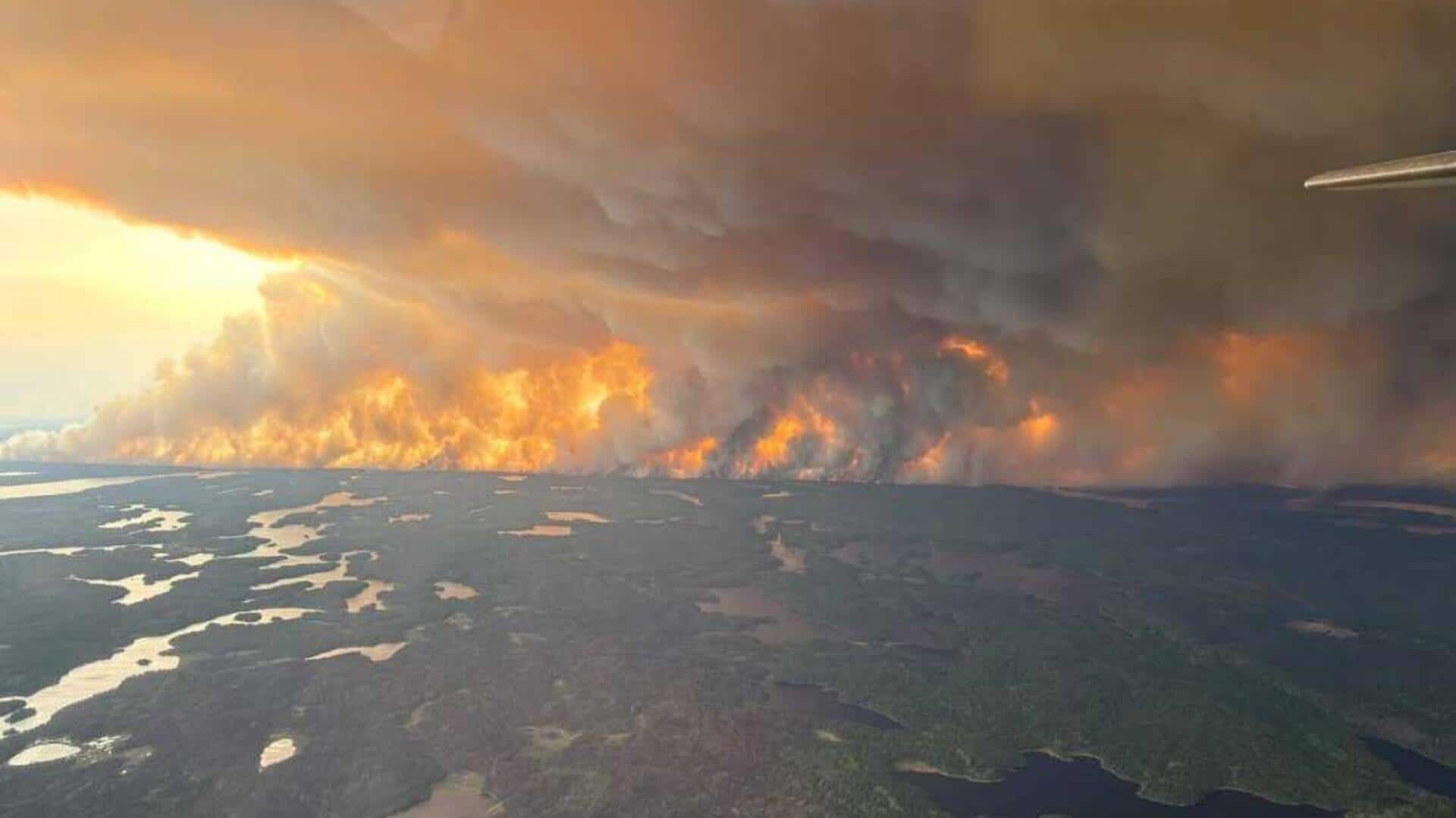
Over 25,000 evacuated as wildfires rage in 3 Canadian provinces
What's the story
Over 25,000 people have been evacuated from three provinces in Canada due to raging wildfires. Manitoba is the worst-hit province, with around 17,000 evacuees. Saskatchewan has also seen around 8,000 people relocated, while Alberta has evacuated about 1,300 residents. Officials have cautioned that the number of evacuees may increase as circumstances remain unpredictable and containment efforts are impeded by dry weather and shifting winds.
Health concerns
Air quality deteriorates, health risks rise
The smoke from the wildfires is degrading air quality and visibility across Canada and into several states in the United States. Saskatchewan's Public Safety Agency has warned that "air quality and visibility...can fluctuate over short distances and vary considerably from hour to hour." The agency added, "As smoke levels increase, health risks increase." According to the US Environmental Protection Agency's AirNow page, air quality hit "unhealthy" levels in North Dakota and parts of Montana, Minnesota, and South Dakota on Sunday.
Shelter crisis
Manitoba's Indigenous leaders call for priority accommodation
In Manitoba, evacuation centers have been set up to accommodate those fleeing the fires, one as far south as Winkler, 20 kilometers from the US border. However, public buildings in Winnipeg are being used as shelters since hotels are already full with tourists and business travelers. Indigenous leaders have urged the government to prioritize evacuees over other guests due to limited accommodation. "This is one of the largest evacuations...since the 1990s," Assembly of Manitoba Chiefs Grand Chief Kyra Wilson said.
Cross-border assistance
US Forest Service sends aid to Canada
The US Department of Agriculture's Forest Service has also pitched in by sending an air tanker to Alberta and promising 150 firefighters and equipment to Canada. "We should expect at least a couple more rounds of Canadian smoke to come through the US over the next week," said Bryan Jackson, a meteorologist with the National Weather Service in the US.
Seasonal threat
Canada's wildfire season and its impact
Canada's wildfire season lasts from May to September, with 2023 being the worst year on record. The fires have also affected some parts of Idaho in the US, where a fire burned at least 50 acres and led to road closures. Firefighters were having a hard time fighting the fire that started on Saturday because of strong gusty winds of 15 to 20 mph (24 to 32 kph) and steep terrain.